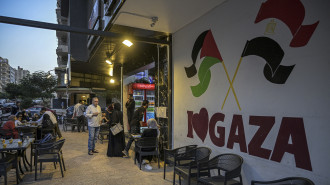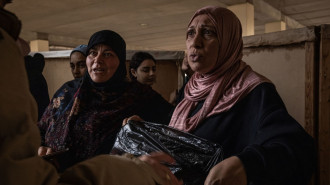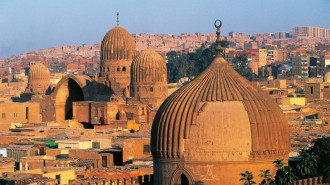Ten years on: Syria's revolution through the lens of the diaspora
On 15 March, ten years ago, the Syrian revolution began. What started with a demand for freedom and a yearning for a better future resulted in one of the most devastating conflicts of the 21st century.
Over 350,000 lives have been lost, more than five million Syrians have been forced to flee to neighbouring countries and an additional six million Syrian civilians have been internally displaced.
The impact of this disastrous conflict continues to pour through the homes and hearts of Syrians everywhere. As they have watched their homeland collapse, the Syrian diaspora has carried an increasingly heavy emotional and financial burden, as the course of many of their lives have shifted. Today, many are still learning how to best deal with their losses, as they dedicate their efforts to Syrian communities across the world.
Rama Chakaki is a Syrian American tech and social impact investor who has founded social impact businesses aiding the development of Arabs globally, including Mint and Laurel, founded in 2019. Based in Los Angeles, she also serves as a board member on the Syrian International Business Association, enabling Syrians worldwide to connect with and help one another.
Chakaki says her reaction to the revolution was socially motivated, stating the war gave her more drive as she "saw that if we didn't all get involved, the effect of the revolution would catapult next generations of Syrians into dismay".
 |
When you lose someone really close, it's surreal. Trying to do something to build on what Syrian civilians started is the best way to pay tribute to the lives lost |  |
Syrian-born Chakaki says, "watching the conflict unfold from the outside was tragic" as she explains the "heavy financial burden" carried by the Syrian diaspora as a result. "We used to support a handful of families prior to the crisis, and now thousands of people rely on us," she told The New Arab. In addition, Chakaki says that, "just having a Syrian passport [started to result in] a lot of discrimination". However, the Syrian diaspora's struggle doesn't end there.
Dr Anas Injarie is a British Syrian ophthalmology consultant who has lived in the UK for fifteen years. He is a member of the British Syrian Medical Council and is the chairman of the 'National Syrian Project for Prosthetic Limbs', which was launched in 2013 and has assisted over 5,000 amputees during the conflict.
At the beginning of the war, Dr Injarie found himself at a crossroads, having to choose between his career progression and helping his country. Despite choosing the latter, he explains that as a part of the diaspora, "no matter what you try to do to help, there will be times when you feel really helpless".
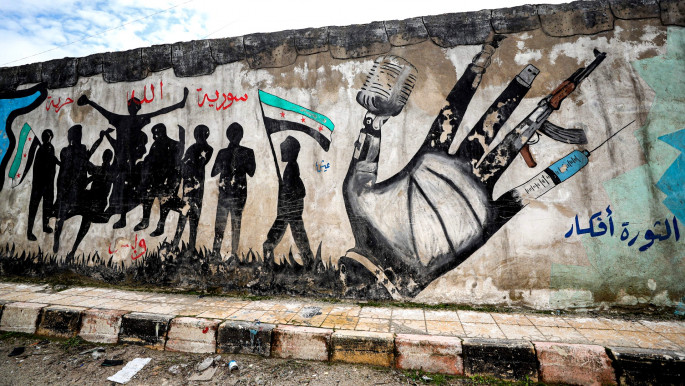 |
|
| Read more: In the shadows of Syria's revolution, a generation of activists is born |
Like many in the Syrian and Arab diaspora, Dr Injarie has lost family and friends to war and has had to deal with grief from afar. However, he says his belief in destiny helped him accept his losses. "When you lose someone really close, it's surreal. Trying to do something to build on what Syrian civilians started, is the best way to pay tribute to the lives lost," he told The New Arab.
Many in the Syrian diaspora have pursued humanitarian work during the revolution. Sami Almutairi, founder of Amal Therapies, is an Arabic speaking therapist and registered member of the British Association for Counselling and Psychotherapy.
He has considerable experience working with the Arab diaspora and describes the trauma of the Syrian diaspora as "complex", stating many "will grasp onto anything that reminds them of who they are".
Almutairi explains that whilst Western communities emphasise individuality, Arab communities emphasise the collective. Working to help and empower Syrian communities can therefore be a key ingredient in breaking the cycle of trauma and feelings of helplessness experienced amongst the Syrian diaspora.
However, pursuing such work does not come without its tribulations. Hand in Hand is a UK registered charity, which officially launched in 2012, providing on-the-ground support for Syrians in need, in Syria and Turkey. British Syrian Fadi al Dairi, the charity's country director, says that whilst his work made him more determined to provide support, it showed him "what it meant for humanitarian workers to suffer from depression".
Al Dairi explained that staff losses, attacks on facilities and seeing the sheer volume of help needed, significantly impacted staff's mental health. "It was shocking to see the bloodshed and the extreme use of force by the Syrian authorities, it was not the Syria we knew," he said.
 |
Many in the Syrian diaspora have pursued humanitarian work during the revolution |  |
Guilt is another common shared emotion amongst the diaspora. Syrian-born Bara'ah Al Dalati is the Programme Director for Souriyat Across Borders, a charity providing rehabilitation for wounded Syrians, alongside educational and vocational support. After leaving Syria in 2017, Al Dalati continued to pursue humanitarian work, as she did when she lived in Syria. However, upon her arrival, she experienced severe guilt and PTSD.
"I started watching how other communities are able to dream and prosper, whilst my generation in Syria had to deal with war just because they demanded their rights. I felt like I wasn't suffering enough".
Al Dalati describes the continuous stream of pain that the Syrian diaspora face as "incredibly difficult". She says, "I was never trained as an acrobat but now I feel like I am one and I'm struggling, because one foot is still in Syria and one foot is in the UK and the gap between the two societies is huge".
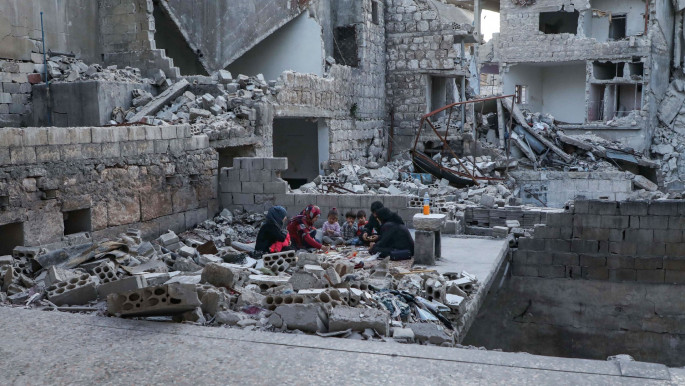 |
|
| Read more: How Syria's war defined a decade |
Therapist Sami Almutairi says, "guilt is the brother of shame". He explains shame may arise as the diaspora feel they could have helped more, or as they simply live in safety which they feel they don't deserve. Here, guilt manifests. However, Almutairi highlights that once the trauma is untangled, these feelings can be eliminated.
Almutairi says the stigmatisation of therapy in Arab culture can prevent many from seeking the help they need. However, he highlights the importance of community support, signposting and seeking help when needed as ways for the Syrian diaspora to resolve their trauma.
It has been a decade full of devastation, as the impact of the war and bloodshed faced inside what was once a beautiful country has surged far beyond it. The Syrian diaspora continue to deal with pain, as many of their efforts go towards helping their people, whilst their loved ones back home continue to endure intense suffering no human being should have to endure.
However, ten years on, shared dreams of a better future continue to unite both the diaspora and Syrians living inside Syria, as the words "God willing, soon" fill their conversations about, and their prayers for, better days.

![Palestinians mourned the victims of an Israeli strike on Deir al-Balah [Getty]](/sites/default/files/styles/image_684x385/public/2024-11/GettyImages-2182362043.jpg?h=199d8c1f&itok=xSHZFbmc)


![The law could be enforced against teachers without prior notice [Getty]](/sites/default/files/styles/image_684x385/public/2178740715.jpeg?h=a5f2f23a&itok=hnqrCS4x)
 Follow the Middle East's top stories in English at The New Arab on Google News
Follow the Middle East's top stories in English at The New Arab on Google News
